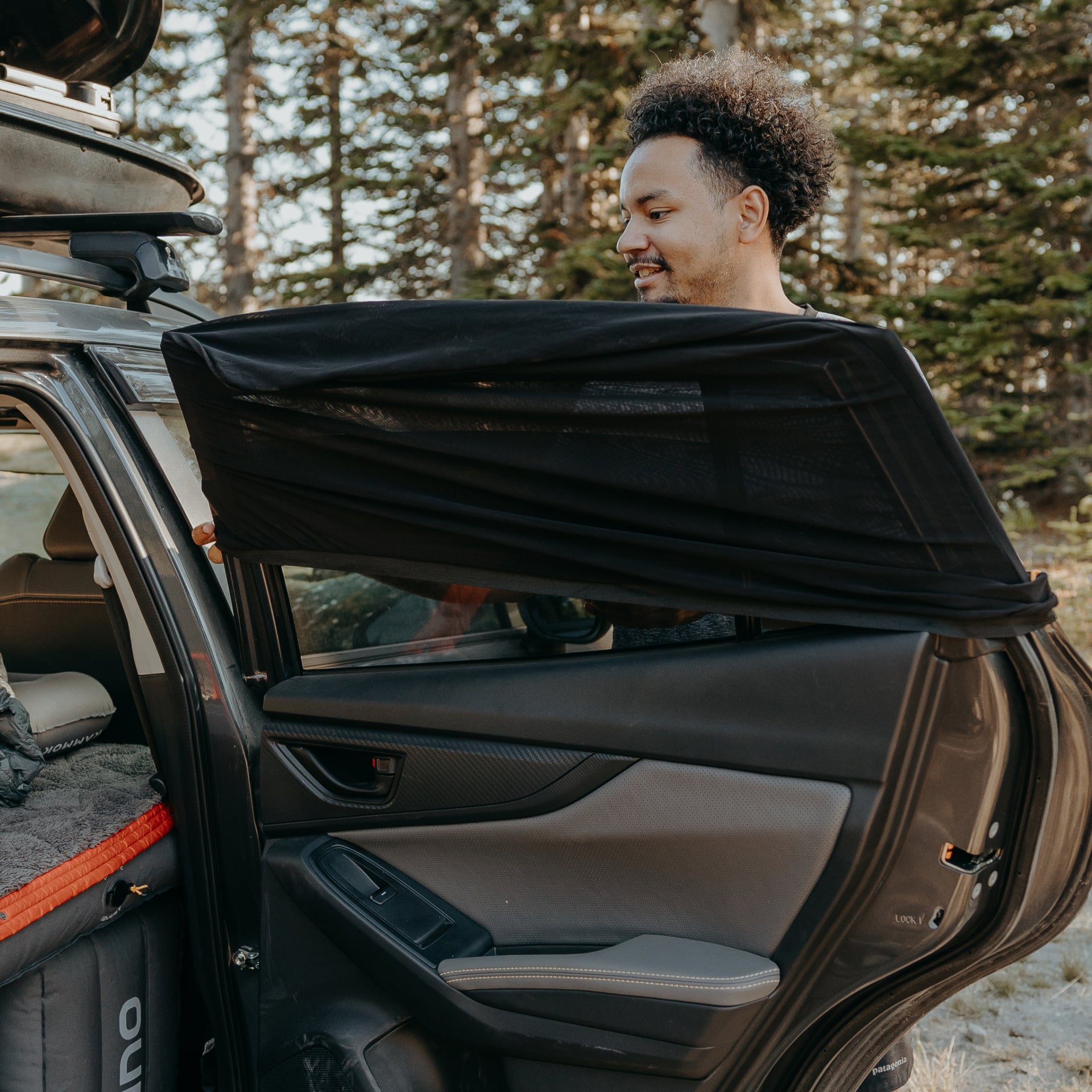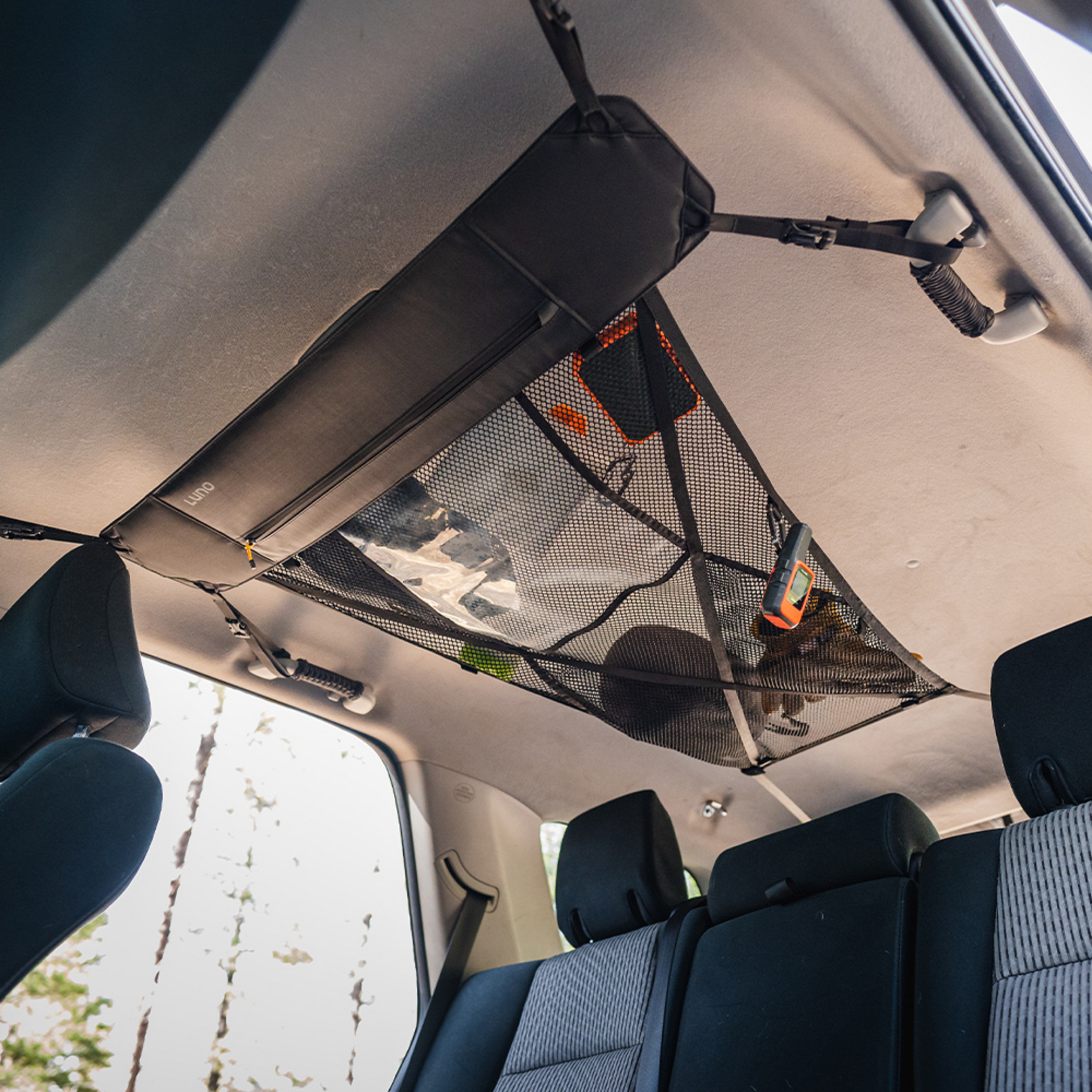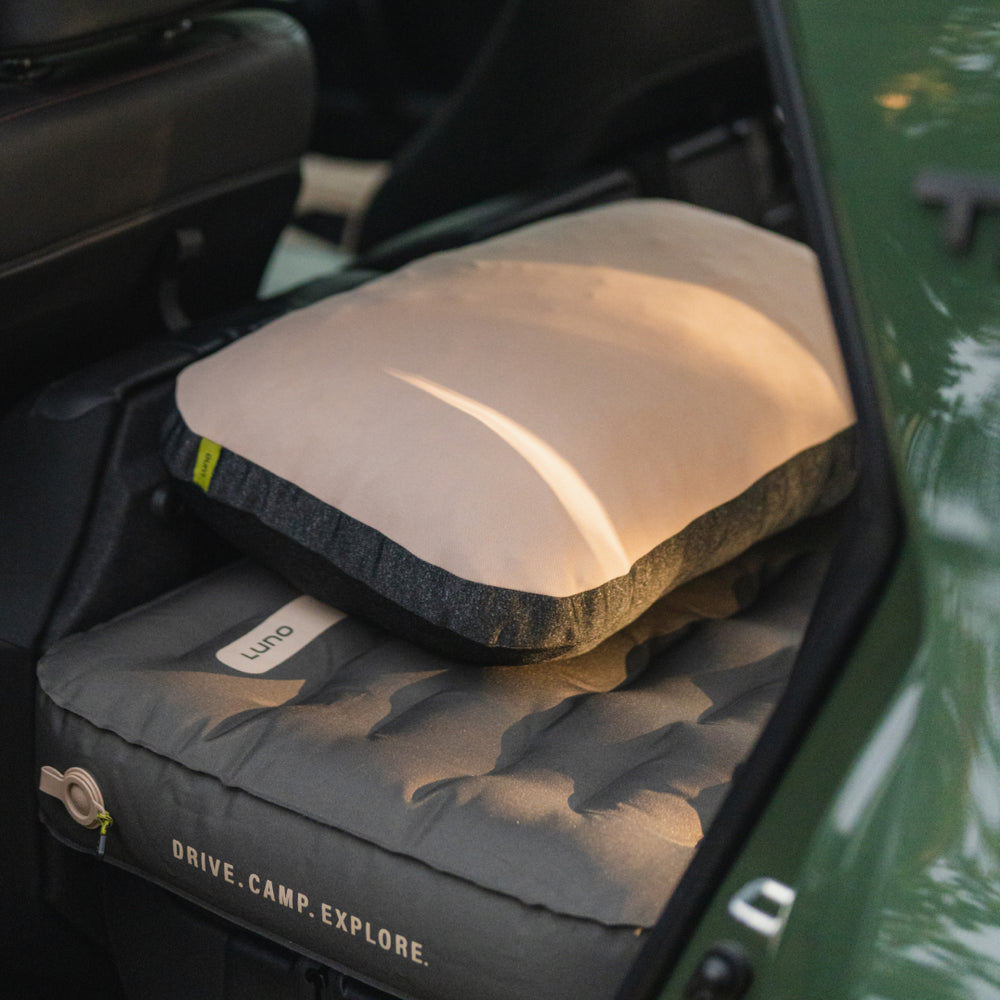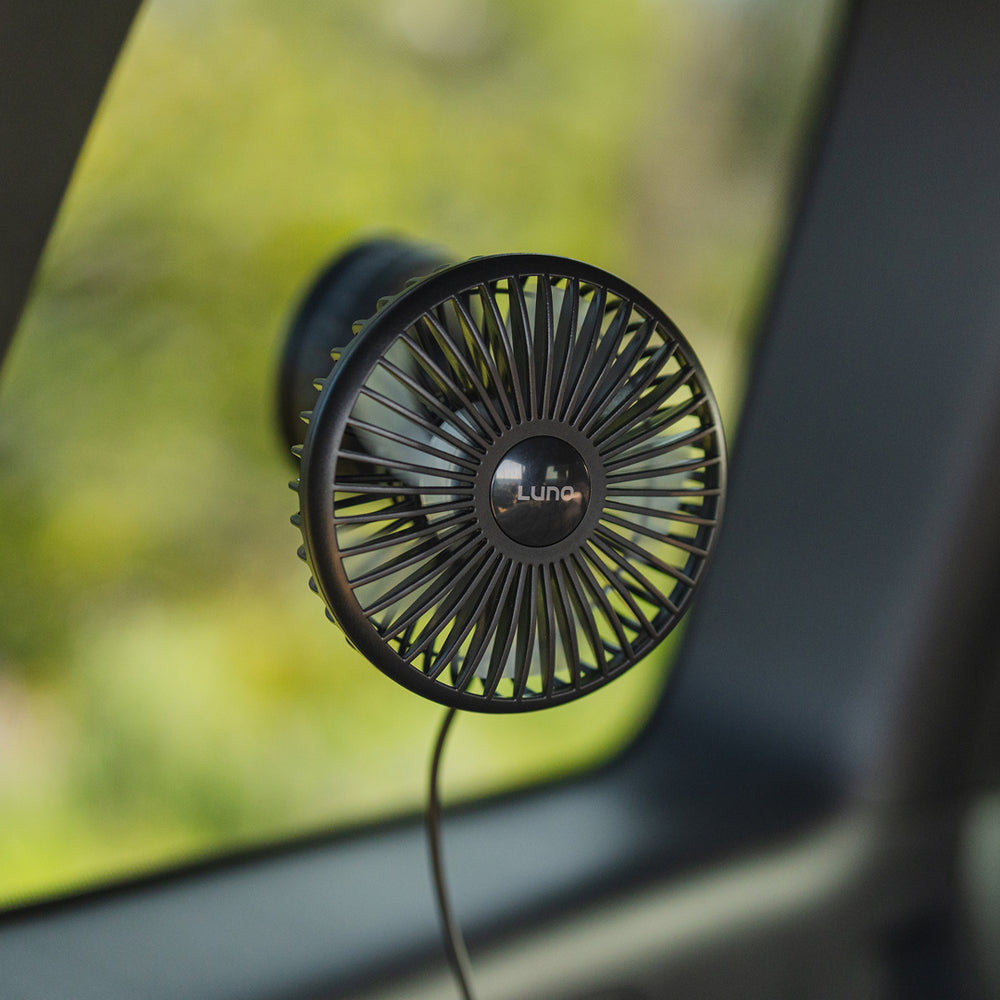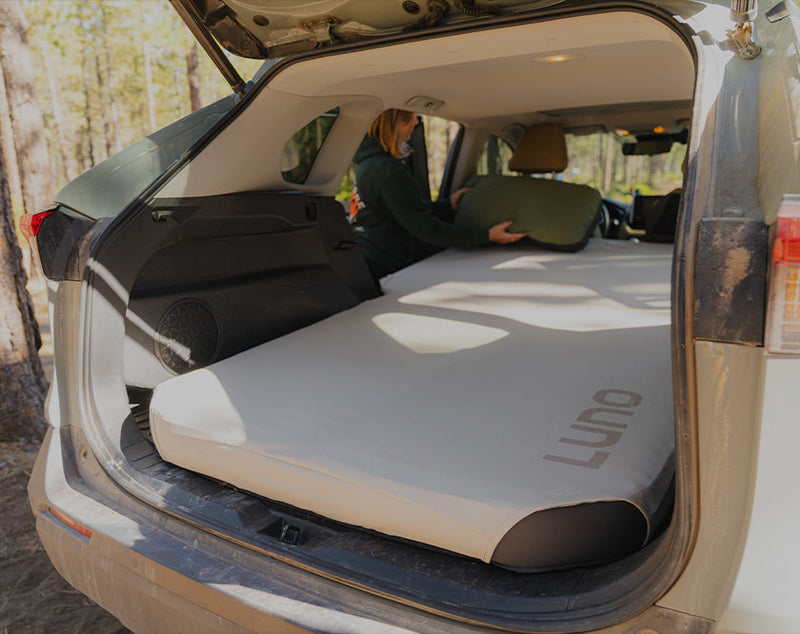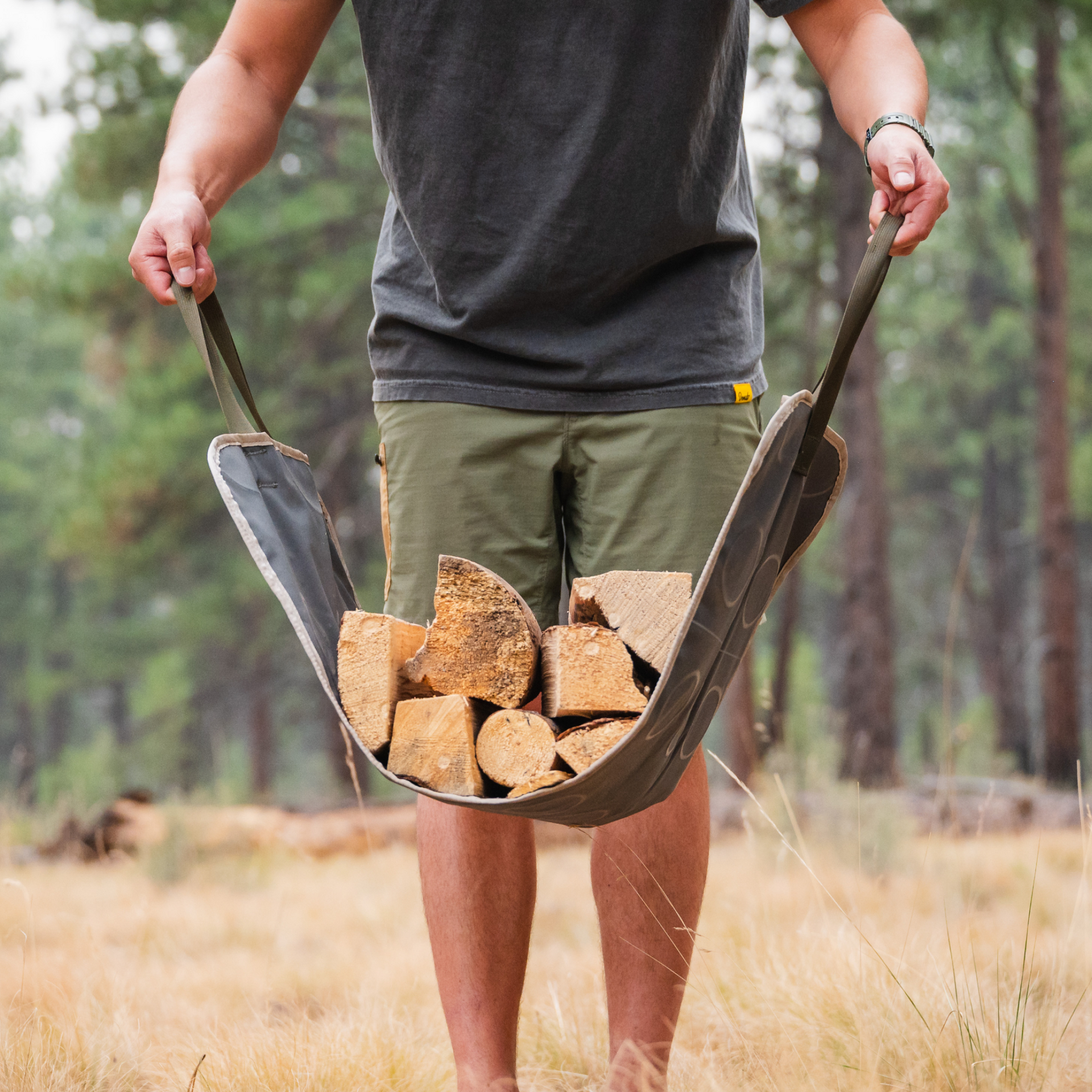
9 Tips for Working Remotely on a Road Trip
The life of the digital nomad might look sexy on Instagram, but looks can be deceiving. The truth is, working on the road can be extremely challenging–certainly more challenging than working remotely from the comfort of your own home or clocking in at an air-conditioned office with lightning-fast WiFi and coffee percolating in the breakroom.
Ideal workspaces are few and far between on the road, but that’s no excuse for slacking. Your boss won’t care if the coffee shop WiFi is acting up, or you get a flat tire on a desert road, or you don’t have decent cell service to take a call. It’s your decision to work from the road–and it's on you to make it work.
That said, with the proper preparation, adaptability, and mindset, you can successfully work from the road and incorporate adventure into your daily life. So whether you’re considering working remotely on a road trip this summer or becoming a full-time digital nomad, we’re here to help. Read on for tips, tricks, and work hacks from Luno team members who have spent years living and working on the road.
1. Public libraries are your new favorite workspaces
Many remote workers gravitate towards coffee shops, but we prefer working in public libraries. Unlike privately owned coffee shops, public libraries are funded by the government, meaning no one cares if you camp out all day and get your work done. Also, libraries are much quieter and more spacious than coffee shops, and you have a better chance of finding a quiet, secluded corner to crush your work.

Of course, libraries aren’t ideal for Zoom meetings, calls, etc. Some libraries have private rooms you can reserve for these purposes, but if not, you’ll want to step outside to avoid the wrath of otherwise benevolent librarians.
2. Don’t overstay your welcome in coffee shops
We love working in coffee shops—big caffeine fans over here. But unless you’re buying a cappuccino and a croissant every hour or two, camping out all day is a bad look. Baristas earn much of their income through tips, so it’s easy to overstay your welcome, especially in busy, smaller coffee shops with only a few tables. If you stay for a lengthy stretch, continuously buy food and drink and tip profusely. Unsurprisingly, this can get painfully pricey. That said, here are a few tips regarding coffee shop etiquette:
- Don’t stay for too long.
- Don’t sit at a big table if you’re solo.
- If you do stay for a while, buy another drink and a pastry or sandwich.
- Tip big.
- Don’t take calls inside the coffee shop—this one drives us crazy.
3. Consider co-working spaces
Co-working spaces usually have excellent WiFi, and while they can be expensive, the perks are often worth it. For instance, a membership at Colorado-based Gravity Haus’s co-working space gets you access to a gym, fitness classes, and, most importantly for vehicle-dwelling road trippers, showers.

We love visiting co-working outfits in mountain towns like Gravity Haus, but if you’re in major cities, check out WeWork and Spaces. In most cases, you’ll get a better deal if you book a monthly membership, but if you’re just passing through, check to see if the co-working space offers “pay as you go” pricing, where you can pop in for a day at a reduced rate.
4. Dial in your own WiFi setup
If you rely exclusively on libraries, coffee shops, co-working spaces, restaurants, gyms, etc. for WiFi, headaches will inevitably ensue. Get your own internet system dialed ahead of your trip to reduce WiFi-based worries.
Our recommendation? Get an unlimited data plan from Verizon, AT & T, etc., set up a hot spot on your phone, and then connect your laptop to hot spot. Granted, this won’t work if you don’t have cell service, so cross-reference coverage maps when planning road trips. Installing a “signal booster” is also a popular hack, as it can turn weak signals into workable ones.
Another pro tip: After logging into public library WiFi, park outside after hours. You should be able to get a signal and work from the comfort of your own rig.
Check out this internet guide from Far Out Ride to dive deeper into the WiFi weeds.
5. Get a comfortable, compact work-from-anywhere setup
If you want to turn a campsite or trailhead into an office, you need a comfortable camp chair at the very least. We’re big fans of Helinox—they make our favorite high-backed camp chairs that balance travel-friendly weight and all-day comfort. Awnings can also significantly improve your work-from-the-road experience, especially in warmer summer weather. Check out this affordable 6.5-foot awning from Thule.

6. Stay powered up
Installing solar panels and an auxiliary battery system is worthwhile for vanlifers and overlanders living full-time out of their vehicles, but we recommend a cheaper, easier approach for casual car campers. Instead, get a portable solar panel and battery system from Goal Zero. You can charge up the battery from an outlet at home, use it to keep your electronics chugging on the road, and top off the battery with solar when you make camp.

Here's an even cheaper hack: get a basic inverter—this one’s $20—that plugs into your car’s cigarette lighter. We don’t recommend this as your sole source of power, as you’ll want a battery that you can use while your car isn’t running, but it’s an excellent backup plan if the weather’s keeping your solar setup from peak performance.
7. Plan your trip around work, not the other way around
If you want to keep the paychecks coming, plan to exceed the expectations of your employer while on the road. Always keep time zones, cell service, and meetings at the top of your mind. This will inevitably require making sacrifices on your road trip.
Maybe the waves are pumping and you want to surf all day, but you settle instead for bookending the workday with an early morning and sunset session. Maybe you take a less scenic freeway instead of a breathtaking backroad so you can have cell service for an important call. Maybe you want to backpack a renowned five-day loop, but squeeze in a quick Friday-to-Sunday out-and-back instead. These small sacrifices are well worth the pleasures of life on the road, and it’s important to remind yourself that you’re not retired–you’re just working remotely.
The exception to the rule? Self-employment. If you’re a freelancer or you run your own business, by all means, plan work around your trip! Life is for sending, after all.
8. Drive less
If you’re clocking 40-hour workweeks while road tripping, longer drives can mess with your sleep schedule and work routine. If you can, plan longer drives for the weekend. And if you’re on a flexible timeline, we recommend you simply drive less. If you find a trailside camping spot with service, or a top-notch library near a climbing crag, give yourself the permission to chill. Stay put, put down some roots for a few days, and get a true feel for the locale.
9. Communicating with your employer
Some digital nomads choose to be upfront about travel plans; others opt to keep them quiet. There are pros and cons to both approaches.
Best-case scenario, you have a good relationship with your employer and are comfortable being forthright about your plans. If you consistently deliver top-tier work in a timely fashion while on the road, you should be able to negotiate flexible workdays—maybe you want to work from 12 AM to 8 PM so you can mountain bike in the mornings, or discuss a later start time if your company is based on the east coast but your road trip is taking you west. However, your employer may shoot down your plans—if they do, do you have a contingency plan?
If you choose not to share your travel plans, get a VPN (Virtual Private Network), which can block your employer from tracking the location of your IP address. (This article from Indie Traveller is a helpful guide to working remotely and VPNs.) Oh, and if you’re trying to keep things on the hush, don’t go blowing up your trip on social media—a classic downfall of millennials on the move.
Safe (and Productive) Travels!
These nine tips are far from exhaustive, but hopefully, they’ll help you plan and execute the road trip of your dreams–without the nightmare of losing your job. It’s not easy to live an unconventional existence while maintaining conventional employment, but if it were easy, everyone would be doing it. Good luck, and we’ll see you on the road—and maybe in the library, too.

